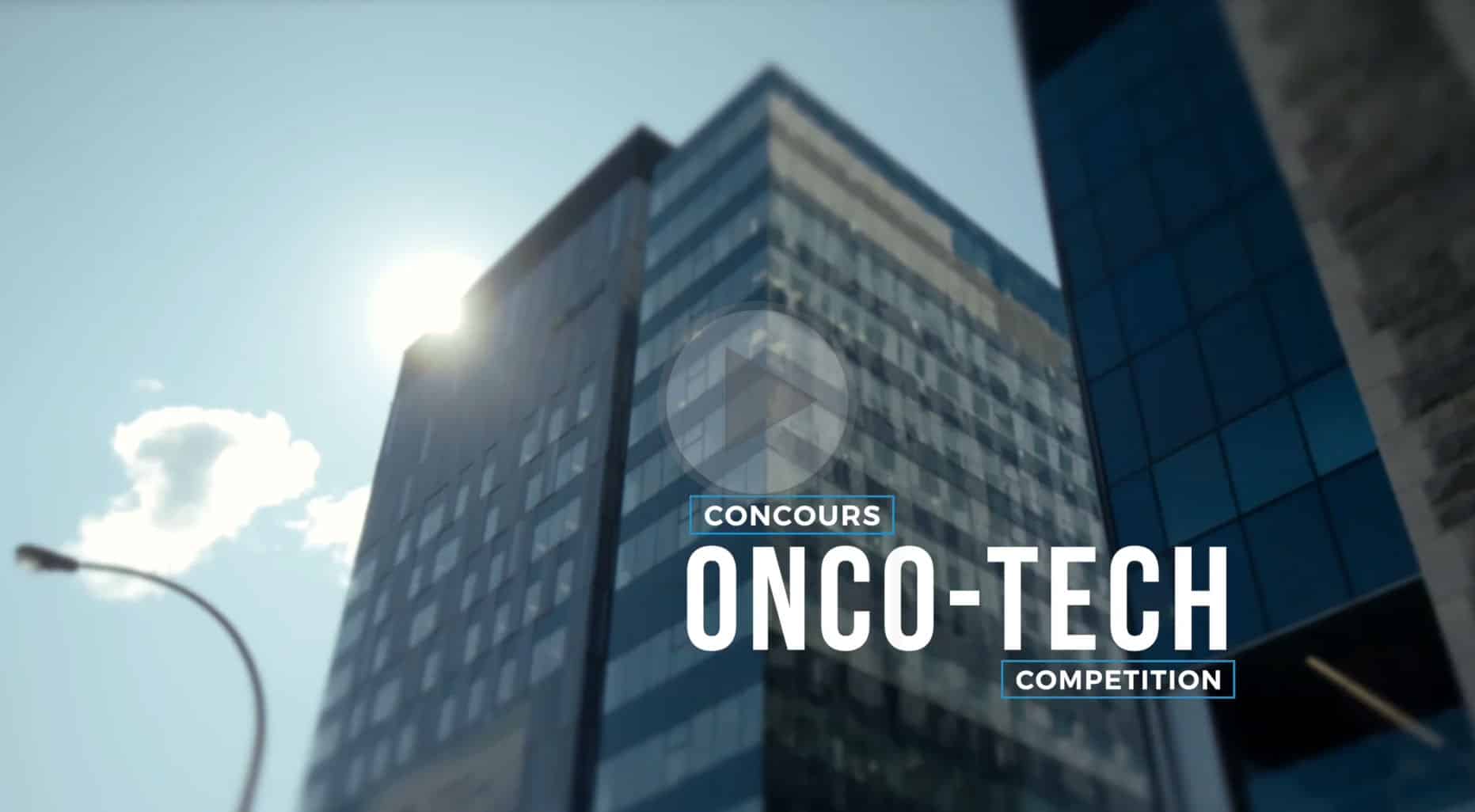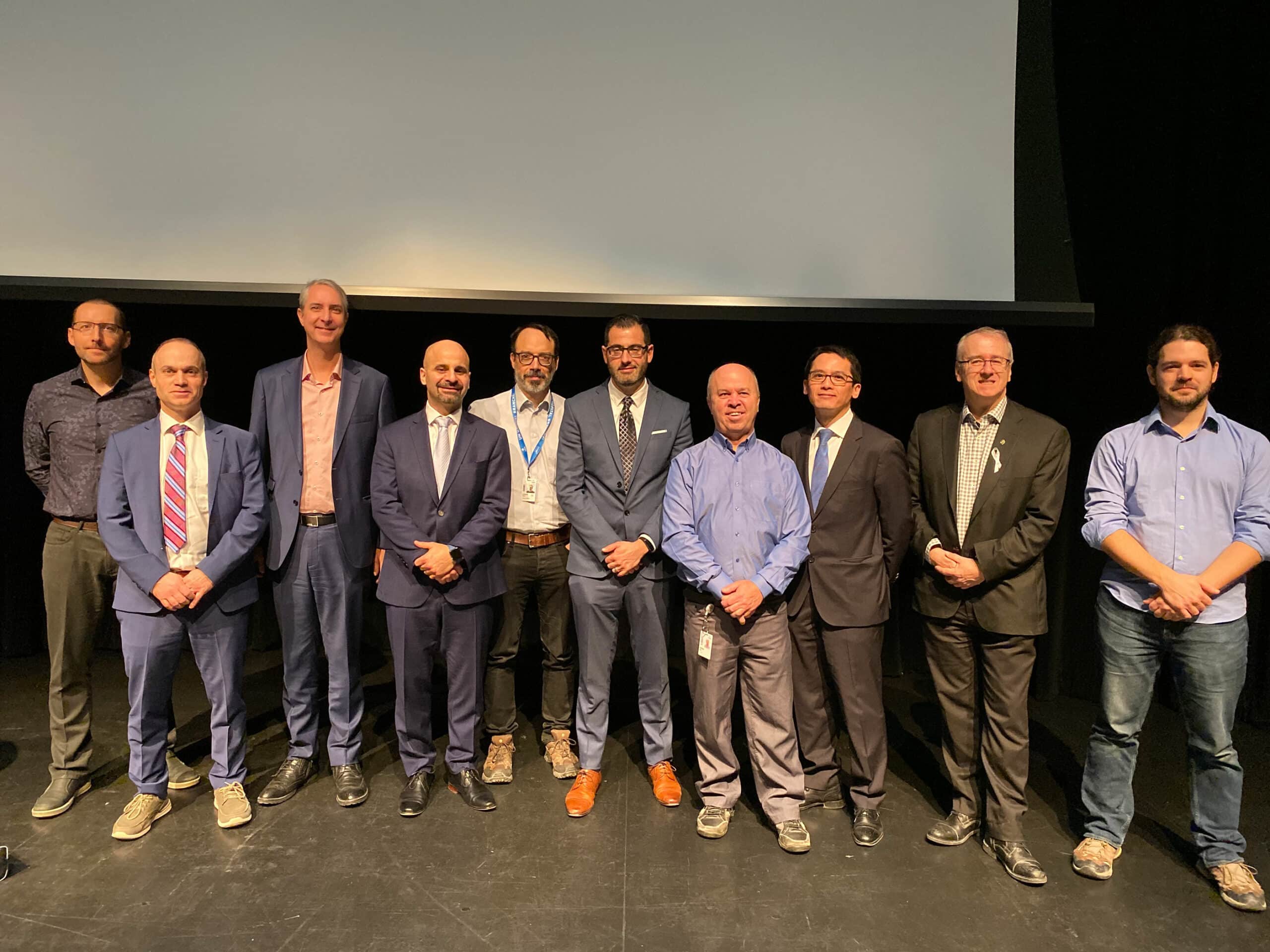The Oncopole, the MEDTEQ Consortium, the TransMedTech Institute and the Cancer Research Society, as part of the joint Onco-Tech Competition, are proud to announce a $2.6M investment to support innovative projects in oncology and in medical technologies.
Created by leading financiers wanting to combine academic research and industry expertise, the Onco-Tech Competition is an opportunity for Quebec investigators to accelerate the development, validation and marketing of new medical technologies in oncology, for the benefit of patients.

Five projects receiving substantial support
Selected for their ability to meet a clinical need by integrating innovative technologies, in collaboration with industry partners such as Imagia, Siemens, Elekta, Photo Etc or ORS, five projects will receive major funding support.
Better classification of mammographic abnormalities using artificial intelligence artificielle [Team led by Julie Lemieux and Louise Provencher (CHU de Québec – Université Laval)]
By using Imagia’s EVIDENS platform, the objective of the research project is to more specifically classify mammographic abnormalities as “malignant” or “benign”. This would result in decreasing the number of supplementary investigations (other breast imaging or biopsy) for abnormal mammography images. The project also provides hope for major advances in breast cancer screening: it seeks to obtain an objective measurement of breast density using artificial intelligence.
Towards a better quantitative and multiplexed lung cancer diagnosis using metallic nanoparticles [Team led by Michel Meunier and Dominique Trudel (Polytechnique Montréal, CHUM)]
The project focuses on the innovative use of multiple metallic nanoparticles of various colours targeting cell surface proteins to ensure a more quantitative diagnosis and multiplexed selection of the imune treatment for lung cancer patients.
Predicting the clinical response to immunotherapy for lung cancer patients, using artificial intelligence [Team led by Drs. Philippe Joubert and Bertrand Routy (Quebec Heart and Lung Institute, CHUM Research Centre]
By putting artificial intelligence to good use, the project aims to develop an algorithm integrating the clinical, radiological and molecular characteristics of the tumor for patients suffering from advanced lung cancer, in order to predict their response potential to treatment aimed at reactivating the immune system in order to destroy tumor cells (immunotherapy).
Better detection of hepatocellular carcinomas to improve the effectiveness of liver cancer treatments using novel algorithms
[Team led by Guy Cloutier and Dr. An Tang, CHUM Research Centre, Université de Montréal]
The team focuses on studying the mechanical and structural properties of the liver using novel algorithms applied to experimental ultrasound images in order to increase the detection of hepatocellular carcinomas (HCC) and thus improve monitoring, the effectiveness of the treatments and patient survival.
A predictive plateform of radiation treatments using breakthroughs in artificial intelligence [Team led by Samuel Kadoury and Dr. David Roberge (Polytechnique Montréal, CHUM)]
The project’s objective is to develop a prediction platform based on deep learning for digital planning and radiation treatments – adaptable, depending on the case in question -, using medical images, for cancer patients.
This major funding will enable the projects selected to benefit from targeted and complementary expertise to accelerate the development of new medical technologies, providing hope in the fight against cancer.
